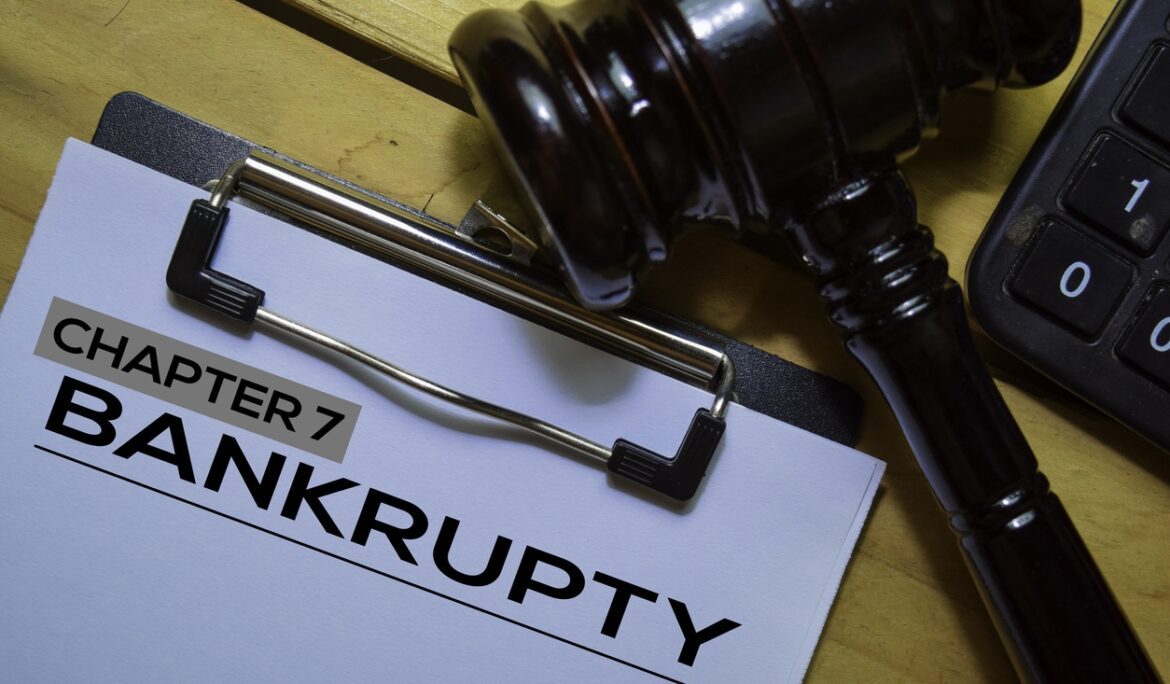What Is Chapter 7 Bankruptcy?
Chapter 7 bankruptcy is one of two popular forms of bankruptcy for individuals and families. While chapter 13 bankruptcy allows those with higher incomes to reorganize their finances and pay debts over time, chapter 7 provides lower-income individuals and families with instant relief, with some conditions.
You can think of chapter 7 bankruptcy as a form of immediate relief. As soon as you file chapter 7, the court places a stay on all your debts. This stay prevents any lenders or creditors from even contacting you. Yes, you read that right. All those invasive calls, emails, and even unethical gambits used to get you to pay are now prohibited. They can no longer garnish your wages, turn off your utilities, or call you at your place of work.
At the same time, a court-appointed trustee will take possession of your property. Two key events will ensue:
- The trustee will arrange a creditor meeting. The creditor meeting involves answering questions before the court to determine which of your assets are exempt.
- The trustee will sell off assets not exempt from liquidation. The proceeds will go toward repaying your creditors. However, most people can keep most assets.
This is why you must work with an experienced attorney like Veronica Deaver, who knows how to protect your most valuable assets, such as your home and your car.
Should You Choose Chapter 7 Bankruptcy?
Chapter 7 bankruptcy is the quickest way out of debt. During chapter 13, for example, you create a reorganization plan that requires repaying creditors over a three to five-year period. Chapter 7 rips you right out of the depths of overwhelming debt. Other benefits include:
- Achieving financial freedom after debt
- The best chance at keeping your property
- Stopping home foreclosure, repossession, lawsuits, collections, and interest accrual
- Discharging a judgment
You don’t get to decide exactly which of your assets are exempt from liquidation. For this reason, chapter 7 bankruptcy works best for:
- Credit card debt
- Medical bills
- Personal loans
- Consumer loans
These debts aren’t tied to assets and are therefore paid off through liquidations. There are also some rules surrounding whether you can file for chapter 7 bankruptcy:
- You can only file Chapter 7 bankruptcy every eight years
- If a judge dismisses your case, you may have to wait at least 181 days before filing again
A judge dismisses a case if they believe it to be an attempt at fraud. Certain individuals will take out loans and file bankruptcy simply to have them eliminated. The potential for mistaken dismissals requires that you work with a highly trusted bankruptcy attorney, such as Veronica Deaver.
Remaining Obligations
Chapter 7 bankruptcy is truly a wonderful legal solution for low-income individuals and families under suffocating debt. But, as with anything in life, it’s not free. Namely, certain debts may remain following the closing of your case. These include:
- Debts not listed at the time of filing. They must be filed with the courts.
- Most student loans
- Recent federal, state, and local taxes
- Alimony
- Court fees from filing
- Criminal offense fees and debts
- Pension debts
- Condo or homeowner association fees
Additionally, you may need to take remedial actions. These include:
- Individual or group credit counseling course with an accredited agency within 180 days before filing.
- Passing a means test. A means test determines if you make enough money to continue paying unsecured creditors. If you don’t pass the means test, you may still be able to file a Chapter 13 bankruptcy.
Chapter 7 Bankruptcy: It’s Worth It
Contact The Law Office of Veronica Deaver Today
Veronica Deaver founded her law firm based on the idea that she and her legal counsel would give each client individualized focus precisely when they need it most. The Law Office of Veronica Deaver is more than just representation. We offer a path to financial freedom for more reasons than our knowledge and experience. We also offer guidance that goes beyond the courtroom, helping our clients understand every step of the way while helping them maintain their composure to make the best possible decisions.
Contact The Law Office of Veronica Deaver today for a free consultation. Give us a call or visit us online for more information about how we can help you begin your journey out of debt today.


